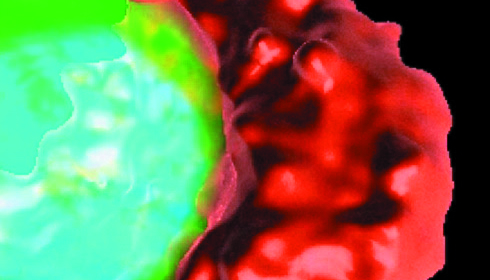
Breakthrough Study Uses Exosomes to Target TKI-Resistant Squamous Cell Cancer Tumours
Clinicians and scientists at the National Cancer Centre Singapore (NCCS) have said that they have found a new way to target squamous cell carcinomas (SCCs), which are hard to treat with EGFR-TKIs. They do this by using exosomes. This study is the first to use exosomes to treat TKI-resistant tumours in Singapore. The journal Developmental Cell published the results last month.
The epidermal growth factor receptor (EGFR) is a prevalent biomarker in cancer, and EGFR-TKIs are a regular family of medications that target EGFR. Despite their usage, the efficacy of these medications has been uneven. Many tumours with high EGFR levels are resistant to TKIs, hindering therapeutic efforts.
Squamous cell carcinoma, one of the deadliest tumours worldwide, typically overexpresses EGFR. Professor Gopal Iyer, Head of the Department of Head and Neck Surgery at Singapore General Hospital and NCCS, has discovered that most patients with head and neck squamous cell carcinoma (HNSCC) do not react to EGFR-targeting medications. In 2017, Professor Iyer and his colleagues revealed that a small percentage of HNSCC patients had mutations that made them susceptible to EGFR-TKIs. This mutation reduced EGFR-AS1 expression while increasing EGFR isoform D expression. Unfortunately, these mutations affect just 3 to 5% of HNSCC patients, leaving the vast majority without viable therapeutic choices.
Building on their 2017 findings, Professor Iyer and his colleagues investigated the feasibility of employing exosomes to treat a larger patient population. They discovered that sensitive tumors could release EGFR isoform D into exosomes. They found that neighbouring cancer cells absorbed these exosomes, increasing their susceptibility to TKIs.
Exosomes are tiny vesicles released by cells that contain a variety of substances including DNA, RNA, and proteins. They alter the behaviour of recipient cells and have shown promise in treating a variety of disorders, including cancer. The researchers successfully demonstrated that exosomes containing EGFR isoform D may improve TKI-resistant cell lines' susceptibility to several TKIs. They said that they have validated this in vivo in a mouse model, demonstrating the ability of exosomes to successfully target resistant tumours.
Professor Iyer, also Head of the Translational Discovery Division of Medical Sciences at NCCS, emphasised the relevance of the findings: "Our research offers new hope for patients by potentially targeting a large population with previously poor prognoses." We are excited to work with industry partners to move this research into clinical applications."
He emphasised the larger implications: "We have discovered a new pathway for exosome use, which may transfer therapeutic sensitivity to other malignancies. This opens up new opportunities for using exosomes in the fight against cancer.
The team intends to increase exosome manufacturing and advance to early-stage clinical studies. Discussions with business and academic partners are underway to assist the next step.
The Singapore Ministry of Health, through the National Medical Research Council (NMRC), MOH Holdings Pte Ltd, and the SingHealth Duke-NUS Oncology Academic Clinical Programme, supported the study.